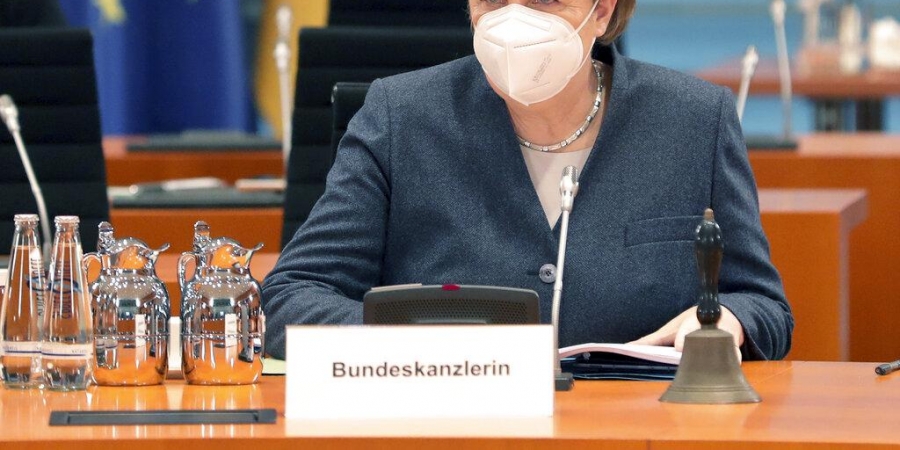 BERLIN: German Chancellor Angela Merkel and the country’s 16 state governors are to decide Wednesday whether to extend a lockdown beyond mid-February, as overall infection numbers are declining but concern is high over cases of new variants.
BERLIN: German Chancellor Angela Merkel and the country’s 16 state governors are to decide Wednesday whether to extend a lockdown beyond mid-February, as overall infection numbers are declining but concern is high over cases of new variants.
Germany’s second lockdown began in November and was extended and toughened before Christmas as numbers of COVID-19 patients threatened to overwhelm hospitals.
It is set to end on February 14, but authorities are expected to extend it again — keeping bars, restaurants and most stores closed, among other things.
The reopening of schools is certain to be a major point of controversy as many favor the quick reopening of kindergartens and elementary schools to take the burden of home schooling off of parents and make sure that underprivileged children don’t fall behind.
In Germany, state governments have extensive powers — including authority over education.
On the other hand, the country’s stressed medical staff are demanding that the lockdown be extended in its current strict form.
The head of the German intensive care association, DIVI, warned Wednesday that the reopening of schools and kindergartens would lead to the re-emergence of virus cases.
“Schools and kindergartens are unfortunately places where the virus is passed on,” Gernot Marx told daily Rheinische Post.
“The kids carry it into the families and most teachers are not vaccinated. As an intensive care doctor I am therefore telling you: this is irresponsible.”
The country’s national disease control center said last week that the more contagious variant first observed in Britain has now been detected in most of Germany’s 16 states.
The variant first detected in South Africa has also been found several times in Germany.
Despite concerns about the new variants, there are signs that lockdown restrictions are slowing the country’s outbreak.
On Wednesday, the disease control center, the Robert Koch Institute, reported 8,072 new virus cases and 813 deaths over the past 24 hours.
In all, Germany has seen over 63,000 confirmed virus deaths.
The weekly number of newly infections has dropped to 68 per 100,000 inhabitants .
The government’s goal is to push the number below 50 to enable reliable contact-tracing.
It peaked at nearly 200 just before Christmas.
The number of people having received at least their first vaccine shot stood at 2.34 million people, or 2.8 per cent of the population, as of Monday.





